Date and time
Convenors:
- Will Eadson, Sheffield Hallam University, UK
- Camilla Chlebna, ZSI – Centre for Social Innovation, Vienna, Austria
- Sebastian Losacker, Justus Liebig University Giessen, Germany
- Laura Norris, Cardiff University, UK
- Maria Tsouri, Western Norway University of Applied Sciences, Norway
Policy aimed towards sustainability transitions is beginning to have fundamental effects on how economic activity is organised across cities and regions. Growing calls in the wake of Covid-19 for a ‘green recovery’ heighten the possibilities for radical transformation of economies, albeit with a wide range of potential pathways, from radical degrowth to revamped low carbon capitalism. These changes are prompting reflection from scholars across the field of regional studies and economic geography. How might we better understand the different impacts (and possibilities) of a sustainable (or ‘green’) economy?
This seminar series will invite leading scholars from across these fields and from a range of career stages to present cutting edge theoretical and empirical work. Through stimulating discussion and debate about ways forward for understanding economic geographies of sustainability transitions, policy and academic communities can be brought together. The webinar series is run by the RSA’s Yorkshire and Humberside Branch and supported by the RSA. It is free and open to all and runs monthly during semester times.
CReST/ARL Joint Webinar Series
This webinar series is jointly organised by CReST and ARL – Academy for Territorial Development in the Leibniz Association.
Transitions, especially in the context of regional and urban development and sustainability involve significant changes that can affect communities in different ways. This three-part webinar series highlights the importance of equity in transitions as equity is essential to ensure that transitions are inclusive, equitable and beneficial for all members of society. The series will focus on three key areas: social housing, energy justice and health equity.
ARL/CReST Joint Webinars – Equity in Transitions
Housing is essential to citizens’ lives, not only as a physical space but also as a foundation for security. Affordable and adequate housing is key to improving living standards and creating opportunities, while poor housing limits prospects. Policies that ensure inclusive, affordable and sustainable housing are essential for resilient and equitable societies.
In recent decades, national housing systems have been challenged by rising inequalities, demographic shifts, changing lifestyles and cuts in social and public housing. Despite regional differences, many European cities are facing housing crises with soaring property prices.
This webinar will provide a comprehensive, evidence-based reflection on past and emerging solutions to the housing crisis, covering organizational frameworks, service processes, and coordination within the evolving public housing sector. The speakers will provide challenges and perspectives from different European countries.
Speakers:
Hélène Roth, University of Clermont Auvergne, France
Hélène Roth has been a senior lecturer at the University of Clermont Auvergne and at the UMR Territories for about 15 years. Her research activities focus mainly on housing issues in small towns in the French context.
Marco Allegra, ICS-ULisboa, Portugal
Marco Allegra is Principal Investigator and chair of the Urban Transition Hub at ICS-ULisboa. He is actively involved in the EU-funded DASH project, which focuses on delivering safe and social housing. Together with his co-authors, he will be sharing insights from this work.
The second webinar in the Equity in Transitions series will focus on energy justice, which seeks to ensure equitable social and economic participation in energy systems. Energy justice focuses on marginalised groups and aims to make energy more accessible, affordable, clean and democratically managed for all. Both academic and practical approaches emphasise fair processes and equitable distribution of benefits.
In a first input, Ludger Gailing will present his empirical work on energy justice in a region that is undergoing structural change and is affected by coal phase-out. He will also explore the key question of what alternative economic opportunities can be created for these regions during their transformation and how this fits into the general debate around energy justice in the energy transition.
In the second input, Saksa Petrova will critically reflect on the conceptualisation and operationalisation of ‘energy poverty’ as a household-level issue. Drawing on her over-a-decade research and her new UKRI/ERC consolidator grant GENERATE, Saska will elaborate why energy poverty should be seen as a socio-ecological precarity and injustice. Such framing of energy poverty does not only explain the processes of why and how specific socio-demographic groups and communities are marginalised and excluded from clean and affordable energy systems and governance, but it also demonstrates the care and solidarity that underpin more-than-mundane strategies used to overcome energy poverty.
The presentations will be followed by an open discussion with all participants.
Speakers:
Ludger Gailing, Brandenburg University of Technology Cottbus-Senftenberg (BTU), Germany
Ludger Gailing is a Professor of “Regional Planning” at the Brandenburg University of Technology Cottbus-Senftenberg (BTU) and member of the ARL – Academy for Territorial Development in the Leibniz Association. Gailing’s research focusses on aspects of regional spatial development and planning such as the geographies of energy transitions, debates around common goods and justice as well the role of transformations for the planning system.
Saska Petrova, University of Manchester, UK
Saska Petrova is Professor of Human Geography and Departmental Research Director at the University of Manchester. Her research and policy activities are situated at the intersection of energy, precarity and gender, underpinned by a wider interest in the political governance and contestation of social and environmental injustices. She has undertaken research across Europe, in China and South Africa. She is the PI of the UKRI/ERC Consolidator grant GENERATE that investigates the gendered energy politics of energy transitions in the Western Balkans.
Health inequality remains a persistent issue in cities, with disparities that are not only avoidable but also socially unequal, unjust, and inequitable. A clear example of this can be seen along the Jubilee Line in London, where the state of health is influenced by spatial divides. These inequalities highlight the vital role that spatial planning, especially urban planning, plays in shaping public health.
In this webinar, speakers from the ARL International Working Group Urban Planning for Health Equity will share their insights from both research and practical experience, focusing on the concept of health determinants, that are spatially linked, and how urban planning can address these issues. They will explore the need for procedural (environmental) justice, which underlines the empowerment of diverse communities and stakeholders in decision-making processes.
To make progress, it’s crucial to sensitise local decision-makers—especially those in planning, administration, and politics—to the impact of spatial inequalities on health. One key approach to achieving this is through the use of visualisation tools, which can effectively communicate complex issues and foster a deeper understanding of the challenges at hand.
Speakers:
Heike Köckler
Heike Köckler is a professor at Bochum University of Applied Sciences, Health Campus in Germany. She is a member of the ARL – Academy for Territorial Development in the Leibniz Association and leads the ARL International Working Group “Urban Planning for Health Equity.” Her research focuses on environmental justice, urban health, and community health, with a particular emphasis on transdisciplinary, transformative, and participatory research approaches.
Martin Knöll
Martin Knöll is an architect and professor of design and urban planning at the Department of Architecture at TU Darmstadt, Germany. Together with his team, he works on advancing the necessary transformation processes towards sustainable, inclusive, and liveable cities. He is the co-chair of the ARL International Working Group Urban Planning for Health Equity.
Claudia Costa
Claudia, PhD, is a professional working at the Municipality of Pombal, Portugal, where she contributes to an interdisciplinary team focused on enhancing the health, happiness, and well-being of the community. She plays an active role as a member of the team responsible for the municipal property cadastre (BUPI) and is also involved with the local team within the Portuguese Network of Healthy Municipalities. Additionally, Claudia is a member of the ARL International Working Group on Urban Planning for Health Equity.
Past Webinars
Session Information
Orderly, Disruptive, or Just Transition? Exploring the Rocky Road of Fossil Fuel Phase Out, Bregje van Veelen, Uppsala University, Sweden
“Will the transition be orderly and planned? Or will activists, NGOs, consumers and the media create a disruptive transition?”
Roadmaps and strategies towards net zero futures are characterized by smooth, uninterrupted lines towards a desired end point of net zero emissions. Despite these sleek depictions of the future, we know the present is often bumpy and uneven. While this has been strongly born out in recent months in the European energy sector, it is not unique to it. In this research I explore how narratives of an orderly transition run up against lived experiences of fossil fuel phase outs on the ground. Based on fieldwork in Canada and the UK I will trace how policy makers, investors, and corporations use the discourse of an orderly transitions to slow down climate actions. At the same time, I will show that in the places affected by change even seemingly well-planned transitions end up being bumpy, unsettling experiences with often unjust consequences.
Global and Local Dynamics of Decarbonising Iron and Steel, Valentin Vogl, Department of Technology and Society, Lund University, Sweden
As the largest industrial emitter of greenhouse gases, the iron and steel industry has seen increasing pressures to decarbonise its production in recent years. In reponse, the industry has come up with several technological options to address the emissions problem. In this presentation, I will follow the implementation of one of these options, hydrogen-based steel production, through its global and local repercussion. On a global level, the shift from coal to hydrogen reshuffles the terrain of constraints and possibilities rooted in the materiality of energy carriers. This, alongside institutional factors and socio-economic realities transforms the economic ‘playing field’ for the steel industry. Locally, I will show how the new economic logic of ‘green steel’ has begun to transform places both ideationally and materially. Drawing on ongoing work, I will illustrate this process through following the emerging green steel frontier to its first instantiation in Northern Sweden/Sápmi. The research presented was part of my forthcoming PhD thesis at Lund University.
Speaker Information
 Bregje van Veelen, Uppsala University, Sweden
Bregje van Veelen, Uppsala University, Sweden
I am a social scientist with an interest in the dynamics of low carbon transitions. There are three main strands to my research: (1) the role of sub- and trans-national actors in low carbon governance, from community groups to the financial industry; (2) the temporal dynamics of high carbon lock in and phase out; and (3) the potential for low carbon transitions to contribute to societal transformation and political democratisation. I currently work as a researcher at Uppsala University in Sweden, having previously worked as a Postdoctoral researcher at Durham University and a PhD researcher at Edinburgh University (UK).
 Valentin Vogl, Department of Technology and Society, Lund University, Sweden
Valentin Vogl, Department of Technology and Society, Lund University, Sweden
Valentin is a final-year PhD student at the Department of Technology and Society at Lund University. His research, which concerns transitions and transformations to sustainability in heavy industries such as steel production, is highly interdisciplinary and evolves in close collaboration to practitioners and other stakeholders in industrial decarbonisation processes. He is particularly interested in the politics of green industrial restructuring.
Spatial Divisions of Low Carbon Labour
Speakers:
Dr Aiden While, University of Sheffield, UK
Dr Will Eadson, Sheffield Hallam University, UK
In this presentation, Aidan While and Will Eadson set out a way of understanding low carbon transition as a process of economic restructuring, paying attention to the state’s role in mediating emergent ‘spatial divisions of low carbon labour’. Decarbonisation is set to be a powerful force of economic restructuring, creating new economic opportunities, but threatening jobs and investment in sectors unable to adjust to fossil fuel divestment. A pressing issue for ‘just transitions’ is whether low carbon economic restructuring is likely to challenge or reinforce prevailing geographies of spatial inequality and labour market (dis)advantage. The spatial divisions of labour approach foregrounds questions of employment, training and pathways to employment as key dimensions of just transition, providing a framework for analysis and intervention. Aidan and Will open up new critical perspectives on low carbon transitions, thinking about decarbonisation as a form of spatial economic restructuring and its potential implications in reinforcing and/or working against existing patterns of uneven spatial development.
State Mediation and Renewable Energy Geographies: On the Role of Regions in Energy Transitions
Speaker:
Carla De Laurentis, Cardiff University, UK
This talk will focus on the role of regions in implementing renewable energy policies, examining the relationship between state policy and renewable energy deployment. Using evidence from comparative case studies, two regions in Italy and two devolved territories in the UK, Carla will tease out some differences in terms of regional competencies to implement renewable energy policies across the two countries. While the regions investigated display differences in their incentives, capacities and capabilities to increase renewable energy deployment, their ability to act is very much influenced by nation-states, stressing the important role of the state in mediating the form and direction of renewable energy deployment. The paper highlights how the relationship between state policy and regional renewable deployment has been influenced by the intersection between state regulation and questions of energy policy and this has strong implications for the practice and outcome of territorial governance.
Rethinking the Concept of Innovation in City and Urban Sustainability Transitions
Speaker: Lars Coenen, Western Norway University of Applied Sciences, Norway
Innovation is a central concept in the bourgeoning literature on sustainability transitions and related analytical frameworks such as the Multi Level Perspective (MLP) and Technological Innovation Systems (TIS). Informed by research on sustainability transitions, the understanding of innovation has broadened considerably, taking it beyond its initial techno-economic paradigm. Also in policy-making, transition studies have become increasingly influential as innovation is used as a boundary object to cut across different policy domains. Directionality and ‘missions’ are nowadays part-and-parcel of innovation policies. Moreover, its generally positive connotation which overlooked social and environmental downsides has become increasingly questioned. There is now a growing interest and focus on ‘other’ forms and types of innovation, an increased reflexivity about the productive and noxious effects and consequences of innovation and greater analytical sensitivity to contested innovations and associated dilemmas. This talk seeks to take stock with this evolving conceptualisation of innovation and to identify critical implications for analyses of city and regional sustainability transitions.
Technology Trajectories in Less-developed Regions: The Co-evolution of Design and Economic Development
Speaker: Laura Norris, Cardiff University, UK
The study of sustainable transitions increasingly considers the role of geography, with cities and the context of developing countries particularly addressed. However, due to the natural resources required in the operation of renewable energy technology, less-developed regions are now witnessing an influx of radical innovations. Drawing on multiple spatial perspectives, the presentation considers how the region within which a technology is developed impacts technology design and proliferation. This includes antecedent industries, policy agendas, institutions and level of economic development. Furthermore, these niche technology innovations transform the place where they are developed through the introduction of new knowledge, adaptation of existing industries, and attraction of new innovative entrants. As such, the evidence suggests that these outcomes might be pursued by regional actors, influencing both economic development and technology design.
Cash Cows? Configuring Low-carbon Agriculture through Green Finance
Speaker: Bregje van Veelen, Uppsala University, Sweden
I am a social scientist with an interest in how low carbon transitions are shaped. There are three main strands to my research: (1) the role of sub- and trans-national actors in low carbon governance, from community groups to the financial industry; (2) the temporal dynamics of high carbon lock in and phase out; and (3) the potential for low carbon transitions to contribute to societal transformation and political democratisation. I currently work as a researcher at Uppsala University in Sweden, having previously worked as a Postdoctoral researcher at Durham University and a PhD researcher at Edinburgh University (UK).
Abstract:
Money makes the world go round, but can it stop the world from overheating? Despite growing calls to make financial flows consistent with Paris Agreement goals, little remains known about the impact of ‘green’ forms of finance. By analysing how resources are assembled for green investment, this talk will demonstrate how we can begin to understand why green finance pools in some places, but not in others, and the implications for climate change mitigation efforts. Using the example of the agricultural sector, I will show that flows of green finance don’t pool in places where they can have the most significant climate impact, but rather in places where they remain distant from nature’s unruly qualities. In doing so, this talk sets out how assemblage thinking can provide a nuanced critique of the idea that we can ‘green’ finance.
Evaluating Timberland as a “Socially Responsible” Pension Fund Investment
Speaker: Kelly Kay, University of California, USA
Kelly Kay is an Assistant Professor in the Department of Geography at the University of California – Los Angeles. Kelly is a political ecologist and economic geographer, and her recent work is concerned with the financialization and vertical “dis-integration” of industrial timberland across the rural United States.
Abstract:
Across the US and Europe, timberland is being touted as a “green” option for pension funds who increasingly face the demand from their members to offer socially-responsible investment opportunities. This presentation draws on interviews with foresters and timber economists and participant observation at two years of timberland investment conferences to argue (1) that only certain forested geographies are investable for entities like pension funds, and (2) that the socially-responsible nature of these investments is questionable, due to prevailing norms around labor practices, forest conversion, and land management. While much has been written about the financial geographies of farmland investment, this presentation advances our understanding of the “financialization of nature” by highlighting how a parallel process in timberland has distinctive geographies, time horizons, and ecological and social outcomes.
Regional pathways to Sustainability Transition
Speakers:
Camilla Chlebna and Jannika Mattes, Carl von Ossietzky University Oldenburg, Germany
Camilla Chlebna is a postdoctoral researcher in the working group for Organisation and Innovation within the Institute for Social Sciences at the University of Oldenburg. She participates in the REENEA project on regional energy transitions in German regions. Camilla studied Regional Planning and Development at the University of Technology in Vienna, Austria, followed by a Masters and PhD at Oxford Brookes University in the UK. In her PhD she compared the development of the wind energy industry in Germany and the UK.
Jannika Mattes is Professor of Organisation and Innovation and Emmy Noether research group leader (project REENEA) at the Carl von Ossietzky University Oldenburg, Germany. She studied European Business Studies in Bamberg, Germany, and Granada, Spain, and wrote her PhD on the embeddedness of collaborative innovation projects in multinational companies. Research interests include innovation studies, collaborative innovation, regional embeddedness and sustainability transitions.
Abstract:
The recent paper by Camilla and Jannika on The fragility of regional energy transitions argues that transition processes on the regional level remain fragile throughout. They are especially susceptible to dynamics at the local, regional, national and international level. Actors need to respond to these fragile conditions to stabilise the environment for the transition to proceed. A case study from Oldenburg exemplifies this.
REENEA
REENEA stands for Regional Energy Transitions. The project takes the social dynamics involved in processes of energy transition in focus. The regional level and the wind energy sector are at the centre of attention for the project but interdependencies with and impacts on the supra-regional context (national, international and global) as well as other sectors are also considered. The change processes taking place in the regional wind energy sector are analysed in detail in six regions in Germany through mainly qualitative research methods
REENEA combines competencies from sociology, political sciences, economics and economic geography. Together the team develops innovative, inter-disciplinary concepts to complement existing approaches in transition theory. The role of actors from different societal fields (politics, administration, industry, science, finance, representative bodies and civil society) in the regional innovation and transformation process is analysed.
Think global, act local? Global innovation systems and their differential effects on regional ‘green’ path creation
Speaker: Christian Binz – Eawag, Switzerland and CIRCLE, Lund University, Sweden
Christian Binz is a tenure-track group leader at the Swiss Federal Institute of Aquatic Science and Technology (Eawag), and an affiliate member at CIRCLE, Lund University, Sweden. His main research interest revolves around the geography of sustainability transitions. By combining insights from transition studies, economic geography and institutional sociology, he aims to explore how multi-scalar dynamics hinder or support radical innovation in clean-tech industries and sustainability transitions in key infrastructure sectors like water, energy or urban transport.
Abstract:
This talk will discuss the complex relationships between global sector structures and regional path creation dynamics in cleantech industries. I will argue that whether and how regions or cities are able to develop and anchor new paths in ‘green’ industries, intimately depends on the respective industries’ global innovation system structures. Based on recent empirical evidence from the water and energy sectors, I will show that what often looks like inherently ‘regional’ transition trajectories is in fact strongly influenced by actors and innovation dynamics at other spatial scales. Regional innovation policies and governance strategies aiming to induce green path creation thus have to be reflexive of a given industry’s multi-scalar innovation and valuation characteristics.
Speaker: Stephen Axon, Southern Connecticut State University, USA
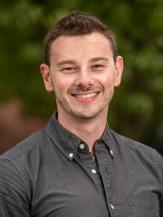
Dr. Stephen Axon is an Assistant Professor of Sustainability Science in the Department of the Environment, Geography and Marine Sciences at Southern Connecticut State University. His research and teaching focuses on the principles, policies, and practices of sustainability; informed by ‘what works’ approaches that are inclusive, equitable, and participatory. At SCSU, his courses focus on the conceptual, practical, and applied dimensions of sustainability. He is currently leading, and working on, the “ESCAPE: Equity, Sustainability, Climate Action, and Public Engagement” and “Post-Pandemic Sustainable Futures” research projects. He is also the co‐director of the Connecticut State University System Center for Environmental Literacy and Sustainability Education (CELSE), and welcomes academic collaborators looking to engage in sustainability-related research as well as graduate students looking to pursue research in this field.
Abstract:
The COVID-19 pandemic has brought to the fore numerous social inequities and vulnerabilities with current systems unable to adequately improve the resilience of those disproportionately affected by disruptive changes. Despite this, the pandemic represents a window of opportunity to address the inadequacies of system responses to ensure that resiliency can be improved. By rejecting a return to ‘normal’, the disruptive change caused by the pandemic presents a series of ‘entry points’ for policies and interventions to be implemented as part of a sustainable transformation. The STEP:AHEAD (Sustainable Transformation Entry Points: Addressing Hurdles in Environmental Action and Degrowth) project is investigating how the nature of the pandemic and the multitude of responses to it, may shape actions to address widespread systemic unsustainabilities. This presentation outlines the ways in which the COVID-19 pandemic can be seen as an opportunity, despite its continued negative impacts, to facilitate change that minimises social inequities and vulnerabilities while maximising resilience in key sectors of the economy e.g. energy generation, transport, and supply chains. The (very) initial findings of a policy analysis of the transport, supply chain, and energy generation industries in the United States are presented with implications outlined for a post-pandemic sustainable future.
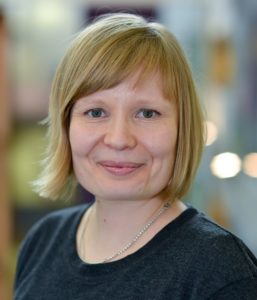
Dr Mari Martiskainen is a Senior Research Fellow at Sussex Energy Group (SEG), Science Policy Research Unit (SPRU) at the University of Sussex, UK. She is also the Theme lead for Equity and Justice at UK-wide Centre for Research into Energy Demand Solutions (CREDS). Mari is a social scientist with a specific interest in sustainability transitions, especially in relation to a just transition to a net zero society. Her current research focuses on the interlinkages between fuel and transport poverty, while in the past she was worked for example on energy justice implications on low carbon pathways; social innovation in addressing fuel poverty; and the role of various users in low-carbon transitions. Mari has published widely in academic journals such as Climatic Change, Energy Policy, Energy Research and Social Science, Environmental Innovation and Societal Transitions, Environment and Planning A, Global Environmental Change, Technology Analysis and Strategic Management and Research Policy.
University of Sussex profile: https://profiles.sussex.ac.uk/p197918-mari-martiskainen
Twitter: https://twitter.com/martiskainen
ResearchGate: https://www.researchgate.net/profile/Mari_Martiskainen
Google Scholar: https://scholar.google.com/citations?user=zRm3xbQAAAAJ&hl=en&oi=ao
Abstract:
We need to urgently address climate change and undertake an extensive and rapid decarbonization of both energy and transport systems. At the same time, it is widely acknowledged that such a transition should be ‘just’ and avoid worsening inequalities. This raises questions such as: Who may be especially vulnerable in low-carbon transitions? How can we ensure that low-carbon transitions do not worsen inequalities? Building on work within the FAIR project and INNOPATHS project, this presentation looks at the challenges linked to ensuring just low-carbon transitions, and what we need to consider in order to ensure that such transitions are beneficial to everyone in society.
Build Back Better? Post-Covid recovery, green entrepreneurs and sustainability transitions
Covid-19 has both had major economic impacts and created conditions for reflection on how post-Covid recovery pathways might offer low carbon futures. For example, there has been speculation that many of the changes associated with lockdowns such as reduced commuting, increased working from home and local food sourcing may continue post-Covid. However, whilst it has been suggested that there is potential to forge more sustainable pathways, conversely there may be further entrenchment of conservative, neoliberal policies promoting an approach to economic growth that reverts to consumption-led growth and growing greenhouse gas emissions. Indeed, we may be in a similar position to the period of the 2008 financial crash where calls for green growth as a new paradigm were largely abandoned or led to minimal green outcomes. In this seminar we explore the potential for new, ‘greener’ forms of economic development from the perspective of green entrepreneurs and their potential role in any sustainability transition. At the same time, we position their role in the broader institutional context of national and sub-national policy, using the UK as an example.
Speakers
David Gibbs, University of Hull, UK

David Gibbs is Emeritus Professor of Human Geography in the Department of Geography, Geology and Environment at the University of Hull. His main research interests are in local and regional economic development, with a particular focus on economy-environment interactions. Recent work into green transitions regions was funded by a Regional Studies Association Fellowship research grant.
Kirstie O’Neill, Cardiff University, UK

Kirstie O’Neill is a lecturer in Environmental Geography in the School of Geography and Planning at Cardiff University. She is a critical human geographer with research interests in the green economy and environmental governance. Recent work has explored universities’ climate emergency declarations as a new round of environmental governance.
Patterns of Leadership for Green Growth
Governments at all levels have increasingly been adopting the concept of ‘green growth’ to inform their efforts to boost economic development and confront sustainability issues. The basic arguments that guide narratives and policy initiatives revolving around green growth are more focused on economic opportunities than on environmental challenges, though they aim to find a balance between the two.
We add to the literature on green growth by explicitly focusing on the ways the many networks shaping evolutionary patterns are lead. We highlight the need to understand better the patterns of place leadership. We define place leadership as the mobilization and coordination of diverse groups of actors to achieve a collective effort aimed at enhancing green growth in a specific place. It works across institutional, organizational, geographical and/or sectoral boundaries to amplify the local power base in order to strengthen the capacity to influence placeless leaders, ie. those with great powers.
We follow those who differentiate transformational leadership from transactional leadership by stating that the latter is more about executing goals and fine-tuning networks and organisational behaviour. It focuses on routines and the predictable. By contrast, transformational leadership is more concerned with influence, the search for novel purposes and boosting institutional changes. Transformational leadership is concerned with the novel and the unpredictable, while transactional leadership seeks to achieve the visible and predictable. Drawing on our empirical observations, we argue that place leadership, in the context of green growth, takes generative modes of action to produce indirectly transformational effects.
In this paper, first, we argue for the need to focus on agency, intentions and interests in studies focusing on regional green growth. Second, to frame the discussion, we discuss the basic tenets of transformational, transactional and generative leadership, and identify their differences and similarities conceptually. Third, using our empirical observations in the Nordic countries, we explore the similarities and differences between the patterns of place leadership in different types of regions.
Speakers
Markku Sotarauta, Tampere University, Finland

Markku Sotarauta is professor of regional development studies in Faculty of Management and Business at Tampere University, Finland. In 2011-2013, he served as the founding Dean of the School of Management and, in 2009-2010, as the last Dean of the Faculty of Economics and Administration. Prof. Sotarauta specialises in leadership, institutional entrepreneurship and innovation systems in city and regional development. He has published widely on these issues in international journals and edited books. His latest publications ’Handbook on City and Regional Leadership’, edited with Professor Andrew Beer and published by Edwar Elgard Publishing. Prof. Sotarauta has worked with the Finnish Parliament, Swedish Innovation Agency (Vinnova), many Finnish ministries as well as cities and regions both in Finland and in other countries. Prof. Sotarauta serves OP Financial Group as the Vice-Chairman of the Supervisory Council, and Tampere District Co-operative Bank (OP Tampere) as the Chairman of Board of Directors.
Nina Suvinen, Tampere University, Finland
Nina Suvinen has had the researcher position at Tampere University since 2005, currently in the Faculty of Management and Business. She has also a few years’ experience of regional level development tasks. Having the degree in Sociology her research interests have been intertwined with territorial innovativeness and evolution including innovation systems, networks, intermediary organisations, emergence of new high-technology industries, and lately green transition of industries and regions.
Presentations
Remunicipalisation, the ‘Return of the State’ and the Crumbling Carapace of Neoliberalism (Andrew Cumbers)
The first two decades of the twenty first century have witnessed a remarkable process of global de-privatisation. In a trend largely and wilfully ignored by political and economic elites, this reflects a marked reversal of the previous tendency towards the wholesale selling off or subcontracting out of essential services – including energy, water and transport – to the private sector. The local and regional scales have dominated de-privatisation, representing the vast majority of cases, in a phenomenon referred to as remunicipalisation. I argue here that remunicipalisation is linked to broader and deeper currents in multi-scalar processes of economic governance; namely the purported ‘return of the state’ and a faltering project of neoliberalism. Drawing upon insights from a project in which we have carried out a global mapping of remunicipalisation cases, I reflect upon its significance as part of a changing terrain of multi-scalar economic governance. This involves highlighting the increasingly evident contradictions in the competition and marketisation rhetorics of neoliberalism in creating sustainable forms of social and ecological development. Although the shell or carapace of neoliberalism is crumbling, there are continued tensions between a growth-fuelled, and increasingly state-driven, capitalism and basic social and ecological needs which remunicipalisation, in its spatially diverse ways, brings to the fore.
Governing Low Carbon and Just Transitions: A Case Study of Nottingham (Katherine Sugar)
The UK has committed to becoming net-zero by 2045 and in turn, over 300 UK local authorities have declared a Climate Emergency. One notable example is Nottingham, a mid-size city located in the East Midlands, which has made commitments to becoming the first UK carbon neutral city by 2028. Not only is this target ambitious and commendable, it is also distinctive from other cities nationally in terms of climate goals and from having an integrated approach across city sectors, such as housing, transport and energy. My research is concerned with how urban actors deliver net-zero commitments ‘in practice’. Using the Nottingham example, I examine the key governing actors engaging with low carbon transitions in practice, and in turn reflect on their political capacity and agency on a local level to stimulate change. I consider the multi-scalar barriers that are experienced when implementing urban transitions in practice, particularly challenges arising from the national level and local level. Finally, using a cross-sectoral approach, I identify initiatives and schemes which have been delivered on-the-ground. In doing so, I explore how path creation and municipal ownership have a significant role in the implementation of decarbonised and inclusive trajectories in Nottingham, specifically through the provision of low carbon and affordable energy and transport.
Andrew Cumbers, University of Glasgow, UK
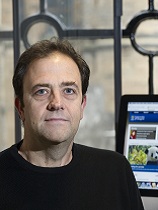
Andrew Cumbers is an academic and political activist. Trained initially as an economic
geographer, he is currently Professor of Political Economy at the University of Glasgow and Editor in Chief of the journal Urban Studies. He holds a European Research Council Advanced Grant: ‘Global Remunicipalisation and the Post-Neoliberal Turn’. His current research focuses upon the role of economic democracy and public participation in creating more equitable and sustainable forms of development. Outside of academia, he has been writing and advocating for democratic forms of public ownership for almost three decades. He was heavily involved in co-producing the UK Labour Party’s proposals for public ownership between 2016-19. He is currently working with the Amsterdam based Transnational Institute and the global trade union federation, Public Services International, to research and advocate for democratic local publicly owned services. He is the author of Reclaiming Public Ownership: Making Space for Economic Democracy (Zed) and more recently The Case for Economic Democracy (Polity).
Katherine Sugar, University of Edinburgh, UK

Dr Katherine Sugar is an Early Career Researcher and has recently completed a PhD at the University of Glasgow, which investigated urban governance for low carbon and inclusive transitions. With a background in geography and ecological economics, she is concerned with multi-level governance of low carbon and equitable transitions, with a particular interest in the different actors involved, the implementation of projects in practice, and challenges encountered and overcome. She is currently working at the University of Edinburgh as a Research Fellow for Energy Efficient Scotland, which includes the social evaluation of recent local authority-led energy efficiency pilot projects in Scotland.
Chair: Camilla Chlebna, Carl von Ossietzky University Oldenburg, Germany
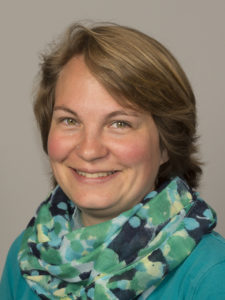
Camilla is a postdoctoral researcher in the working group for Organisation and Innovation within the Institute for Social Sciences at the University of Oldenburg. She is an interdisciplinary researcher cutting across the fields of economic geography, innovation studies, and transition studies with a particular interest for the role and destiny of regions in transition processes towards sustainable development. Since 2018 she participates in the REENEA project on regional energy transitions in German regions. Camilla holds a PhD in Economic Geography and an MSc in Spatial Planning from Oxford Brookes University in the UK and studied Regional Planning and Development at the University of Technology in Vienna, Austria.
Presentations
A Systemic Approach to Mapping Public Engagement with Low-carbon Energy Transitions and Beyond (Helen Pallett)
This talk will introduce the UK Energy Research Centre’s Public Engagement Observatory which is pioneering a new approach to the challenges of public involvement with energy and climate change. The Public Engagement Observatory maps the many different ways that people are engaging with energy and climate change in the UK on an ongoing basis. I will present some of the key findings on public engagement with low-carbon energy transitions from previous work where we developed this approach, and then discuss how we are expanding this work through the new Observatory.
Community Energy in the Baltic Sea Region (Henner Busch)
The Baltic Sea Region is a highly diverse region with nine countries and roughly 80 MIO inhabitants. Even though eight of these countries are EU states, their energy systems differ greatly. These differences are particularly pronounced when looking at the occurrence of community energy projects. For example, Denmark has a long-standing tradition of community energy projects, whereas Poland does not. In this talk, I will summarise some of the findings from the EU-INTERREG Co2mmunity project which ran from 2017 to 2020. I will analyse how historical and cultural factors shape the opportunities for community energy projects in different countries. Finally, I will present snapshots that exemplify how actors can navigate these policy landscape to initiate community energy projects in their respective countries.
Helen Pallett, University of East Anglia, UK

Dr Helen Pallett is a lecturer in the School of Environmental Sciences at the University of East Anglia UK, and a member of the 3S (Science, Society & Sustainability) Research Group. She is a science & technology studies scholar and geographer interested in the relationships between science, democracy and the environment, and particularly in public participation at these intersections. Her recent research has been concerned with mapping diverse cases of public engagement around the topics of low carbon energy transitions and algorithms, as part of the UK Energy Research Centre and the Not Equal: Social Justice through the Digital Economy network respectively.
Henner Busch, Lund University, Sweden

Henner is a researcher at the Lund University Centre for Sustainability Studies in Sweden. He holds a PhD in Sustainability Science from the same university. His work focuses on climate and energy governance, in particular transnational municipal climate networks and community energy. Geographically, Henner has mainly worked on Denmark, Sweden, Germany, and – to some degree -the rest of the Baltic Sea Region. Currently, he is working on justice issues related to Sweden’s transition to a fossil fuel free welfare state and the governance of carbon capture and storage in Scandinavia. Henner enjoys, cooking, riding his bicycle, playing video games, and listening to Power Metal.
The Foundational Economy and Regional Development (Teis Hansen)
Research on regional sustainability transitions increasingly emphasizes attention to transition outcomes, understood as intended and unintended effects of transitions. This opens for an interesting trading zone with work on the foundational economy (FE). The FE approach to economic development suggests that the production of goods and services that are critical to human welfare (e.g., water, energy, education and elderly care) should be the central concern for policymaking. This talk offers a sympathetic critique of the FE and considers future research topics.
Is Energy a Foundational Problem for the Foundational Economy? (Bryonny Goodwin-Hawkins)
Sympathetic critiques of foundational economy thinking have often pointed to sustainability as the proverbial “elephant in the room”. Although the literature is shifting – partly through increased attention to ecological economics – the ‘elephant’ remains too broad and unspecific to budge, and responses have tended towards little more than “small footprint” claims for foundational economy initiatives. In this paper I aim to both narrow the elephant and expand the footprint by taking up a focus on energy. Energy, I argue, occupies a particular, troublesome, and unresolved position in the foundational economy. Locating foundational economy thinking within the continuing conundrum posed by labour politics in the era of post-extractive energy transitions, I suggest that emerging approaches to regional well-being have been (unintentionally) accompanied by the awkward erasure of energy from the complex, relational realities of everyday ‘good lives’.
Speakers:
Teis Hansen, University of Copenhagen, Denmark and SINTEF, Norway

Teis Hansen is Full Professor of Innovation and Entrepreneurship at the Department of Food and Resource Economics, University of Copenhagen and Senior Research Scientist at the Department of Technology Management at SINTEF (Trondheim, Norway). His research focuses on sustainability transitions, bioeconomy, regional development, transformative innovation policy, and the foundational economy.
Bryonny Goodwin-Hawkins, Countryside and Community Research Institute and operational lead for NICRE, the National Innovation Centre for Rural Enterprise, UK

Dr Bryonny Goodwin-Hawkins is an interdisciplinary researcher working towards positive futures for rural people and places. Her research interests include development in peripheral regions and territorial well-being economies. She is currently Senior Research Fellow at the Countryside and Community Research Institute (UK), and operational lead for NICRE, the National Innovation Centre for Rural Enterprise, in South West England.
Chair: Camilla Chlebna, University of Oldenburg, Germany

Camilla is a postdoctoral researcher in the working group for Organisation and Innovation within the Institute for Social Sciences at the University of Oldenburg. She is an interdisciplinary researcher cutting across the fields of economic geography, innovation studies, and transition studies with a particular interest for the role and destiny of regions in transition processes towards sustainable development. Since 2018 she participates in the REENEA project on regional energy transitions in German regions. Camilla holds a PhD in Economic Geography and an MSc in Spatial Planning from Oxford Brookes University in the UK and studied Regional Planning and Development at the University of Technology in Vienna, Austria.
On the geography of green and digital technologies: what’s beyond relatedness?
The presentation aims to revisit the relatedness approach to the local development of green technologies by integrating in its framework the regions’ involvement in the digital transformation and in the so-called “twin-transition”. In the first part, it will discuss the extent to which the regions’ stock of Artificial Intelligence knowledge can be harnessed for them to specialize in environmental technologies. In the second part, it will present on-going research on how firms’ localization in urban vs. rural areas can affect their capacity of linking the adoption of digital technologies to their eco-innovation.
Interregional Linkages for Green Technological Diversification in Core and Peripheral Regions
Regions aiming for a more environmentally sustainable economy have to shift their innovation efforts towards green technologies. Technological change has a strong path-dependent and endogenous nature, such that regions tend to diversify into new technological activities that are related to those already present locally. Yet, an overarching focus on related diversification and endogenous capabilities may not fully reflect how places diversify into highly complex and potentially unrelated technologies such as green ones. Instead, regions and especially peripheral, less complex regions who have fewer endogenous capabilities, may benefit from linkages to external knowledge that complements the local knowledge base. This paper investigates this question with respect to green technological diversification and interregional co-inventor linkages across 256 NUTS2 regions. Early results show that interregional co-inventor linkages among regions with complementary capabilities support green diversification, and in particular the development of new unrelated green technologies. Moreover, we find evidence, that for peripheral regions, namely those NUTS2 regions that exhibit the lowest technological complexity, interregional linkages in general are paramount.
Sandro Montresor, Gran Sasso Science Institute (GSSI), Italy

Sandro Montresor is full professor of Applied Economics at the Gran Sasso Science Institute (GSSI), L’Aquila, Italy. He has previously served as full professor of Economic Policy at the Kore University of Enna, assistant and associate professor at the University of Bologna, and senior research grant holder at the JRC-European Commission. He is member of the Directive Board of the Association of Italian Economists, co-editor in chief of the Journal of Analytical and Institutional Economics, Economia Politica, associate editor of Industry and Innovation, and member of the Editorial Board of Eurasian Business Review.
His main research interests are in the economics and geography of innovation, with a special focus on the determinants and spatial distribution of eco-innovations and green-technologies. On these and other research topics, he has published extensively on leading international journals, like Research Policy, Industrial and Corporate Change, Small Business Economics, Economic Geography, and Regional Studies. On the same topics, he has coordinated and participated to a number of international and nation-wide, peer-reviewed research projects, and supervised PhD theses in both Italian and international doctoral programs.
Simone Grabner, Università Cattolica del Sacro Cuore, Italy
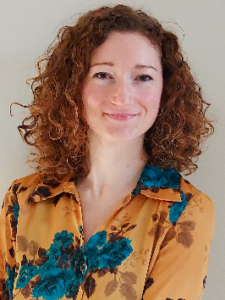
Simone is an Assistant Professor in Economics at the Department of Economic Policy at the Università Cattolica del Sacro Cuore in Milan, Italy. She obtained her Ph.D. from the Gran Sasso Science Institute in L’Aquila and was previously a postdoctoral researcher at Bocconi University. Simone’s research focuses on innovation, industrial evolution and economic geography, with a strong emphasis on the green economy. She has worked on topics such as regional economic resilience and growth; local labour markets and teleworkability; regional industrial and technological diversification.
Chair: Sebastian Losacker, Leibniz University Hannover, Germany

Sebastian Losacker is a postdoctoral researcher at the Institute of Economic and Cultural Geography at Leibniz University Hannover. His research interests include the diffusion of green technologies, the geography of environmental innovation and regional sustainability transitions with a particular focus on China.
Circular economy in its place: analysis of the spatial distribution of benefits from emerging circularity (Pauline Deutz)
The circular economy has captured the imagination of both policy makers and academics in an extraordinary fashion over the last five to ten years. Offering actionable principles for the progression of sustainable development, a circular economy has multiple strategies to optimise resource use (re-use, re-manufacturing and recycling amongst others). The benefits held to be associated with such practices include economic advantages to companies and individuals and places at scales from the local to supranational. In very recent years, there has been an emerging critical analysis of the likely social effects and spatial distribution of benefits (and potential disbenefits) to a developing circular economy. The EU-funding Cresting project (Circular economy: sustainability implications and guiding progress) is contributing to that body of research. This talk will focus on Cresting research based at the University of Hull, which uses Hull and its surroundings in the north east of England as case studies for analyses of industrial collaboration, employment and social enterprise driven circular economy activity in a spatial context. As a structurally disadvantaged city, and furthermore one that is located in a region with a singularly carbon-intensive economy, Hull is an example of a place that aspires to benefit from circular initiatives. Drawing on a range of primarily qualitative approaches (including interviews, surveys and policy analysis), this talk will review the challenges and contradictions that emerge when an attempt is made to capture the benefits of circularity in a specific place.
The circular economy as a child of its time. How increasingly urban planning is facilitating/should facilitate industrial functions (Karel Van den Burghe)
The circular economy has become popular among private and public actors in a relatively short time. Mostly the concept is labelled as a proactive way to accelerate the (decades old) sustainability goals. However, the concept of the circular economy is known for five decades or so. In this talk, I will explain that not in the first place sustainability, but geopolitics explain the remarkable quick popularity of the circular economy. After decades of hyperglobalisation, since 2008 we experience a slowbalisation, that is now going into a de-globalisation. By now, the first structural effects are emerging, effects that signal we are most likely moving towards a multi-block world, a world wherein (im)material dependencies are used as leverage. In this perspective, the circular economy makes sense, because if you are able to reuse the materials and products you own, maybe imported them in the past from less-friendly parts of the world you become less dependent on those. While these arguments increasingly become central in (inter)national policy documents, in more local policy documents, this is not the case. In contrast, especially in urban areas, we see that the concept of the circular economy is used to further accelerate the ‘urban growth machine’, developing urban service sector related living environments – which I label as ‘peak urbanism’. Linking back to the changed/changing global context, the talk concludes that urban planning should embrace (again) industrial functions, and that the context wherein the creative city could thrive, could be over.
Pauline Deutz, University of Hull, UK

Following on from a multi-disciplinary training, with degrees in Geography and Geology, Pauline’s research takes an interdisciplinary social science approach to the co-ordination of environmental issues with other social-economic priorities. Over the last 20 years, examples of her research have included: incorporation of industrial ecology/circular economy principles into economic development & resource management; integration of eco-design in product design; building the capacity for sustainability in waste management. Much of this research comes relates to what is now referred as the circular economy – policy and practices for a social transformation in resource use. Pauline was co-PI of the University of Hull’s ‘Evolving a Circular Plastics Economy’ project funded by the UK Engineering and Physical Sciences Research Council. She is coordinating the EU Marie Skłodowska Curie Innovative Training Network ‘Cresting: Circular Economy: sustainability implications and guiding progress’, which was designed to address the deficit in spatial and social analyses of the circular economy. Since 2005, Pauling has co-chaired the industrial symbiosis, industrial ecology and now circular economy track of the International Sustainable Development Research Society. Following six years as vice president of ISDRS, Pauline was President for 2018-2020 and is now the official Past President.
Karel Van den Berghe, Deflt University of Technology, The Netherlands

Dr. Karel Van den Berghe is Assistant Professor in Spatial Planning and Urban Economy at the faculty of Architecture and the Built Environment at the Delft University of Technology (NL). Next, he is guest professor at the Erasmus University Rotterdam, faculty of Economics (NL), and at the Ghent University, Maritime Sciences (Belgium). Karel holds a master in Geography and a master in Spatial Planning and Urbanism. His PhD (09/2018) focusses on the Planning of the Port City, mapping and planning socio-economic relational networks. More recently, most research projects and education fall under the umbrella of the circular economy, in particular focusing on the role of space. In this respect, he is one of the PIs of the large NWO international research project SUBLIME. Karel has published widely in national and international academic and professional journals. Finally, he has been part of the European Regiostars jury 2019 as a promising early career researcher, and acts frequently as advisor for public and private organisation regarding spatial economic planning, in particular the circular economy.
Roberta Rabellotti, Green Windows of Opportunity for Latecomer Development
The green transition may open green windows of opportunities (GWOs) for developing countries to catch up and forge ahead in green sectors and related value chains. In my presentation I will address the following research questions: (a) does the green economy offer opportunities for latecomer catch-up in developing countries? (b) what characterizes the capacity of developing countries to seize these opportunities? (c) what policy options can support developing countries in their efforts to take advantage of GWOs? These questions are addressed by undertaking a wide literature survey aimed at collecting information about experiences in sustainability-oriented sectors in countries at different levels of development. The evidence is analysed following a tailored analytical framework devised to analyse green windows presented in Lema et al. (2020).
Sebastian Losacker, The Diffusion of Green Technologies in Chinese Regions
Environmental innovations can contribute to solving global challenges at the regional level, with regions being key arenas for developing environmental innovation, for pioneering their application and for promoting widespread use and diffusion. However, regions differ greatly in their ability to both develop green industries and to make use of environmentally benign technologies. Therefore, the diffusion of green technologies unfolds in complex spatial patterns. In this presentation, I address the geography of green technology diffusion in Chinese regions, analyzing a unique data set of geocoded patent licensing agreements. The presentation includes empirical insights on the speed of green technology diffusion, on regional technology transfer networks, and on local vs. non-local market formation processes.
Speaker: Roberta Rabellotti, University of Pavia, Italy
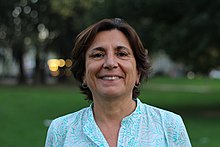
Roberta Rabellotti is Full Professor of Economics at the Università di Pavia, Italy. She has got a Master of Science in Development Economics at the University of Oxford and a Doctor of Philosophy at the Institute of Development Studies, University of Sussex. She specializes in the analysis of the industrial sector in developing countries. Her areas of interest are: industrial policies, small business promotion, international trade policies, industrial districts and clusters, global value chains. Prof. Rabellotti has working experience with the Inter-American Development Bank, European Union, UNIDO, ILO, ECLAC-UN, UNCTAD. Her publications include books with Harvard University Press, MacMillan and Edward Elgar as well as numerous articles in peer-reviewed journals.
Speaker: Sebastian Losacker, Leibniz University Hannover, Germany

Sebastian Losacker is a postdoctoral researcher at the Institute of Economic and Cultural Geography at Leibniz University Hannover. His research interests include the diffusion of green technologies, the geography of environmental innovation and regional sustainability transitions with a particular focus on China.
Chair: Maria Tsouri, University of Oslo, Norway

Session Information:
What you read is what you see? Wind turbines in the German news
The energy transition towards carbon-neutral energy sources is one cornerstone of mankind’s fight against climate change. However, some renewable energy sources, such as wind energy, have been met with a gradual increase in opposition, slowing the speed of the energy transition. Understanding the shape and causes of such opposition is important for policymakers. The paper studies the role of (regional) newspapers as a potential amplifier of ressentiment towards and support of wind energy by exploring the link between their audiences’ exposure to wind turbines and how these are presented in news texts. In the empirical study, the number of news articles dealing with this topic and regionalized sentiments towards wind energy are extracted from German newspaper headlines between mid-2019 and mid-2021. The data set is enriched with information on the number of wind turbines located within a region and in it is neighboring regions. The empirical analysis reveals that people living in regions with more wind turbines experience more reporting about wind energy. A higher number of turbines is found to be associated with fewer negative emotions toward wind turbines in news texts. Moreover, newspaper sentiments are more authentic and less confident when their audience is located closer to wind turbines.
The importance of science for the development of new PV technologies in European regions
Energy production is a significant determinant of the transition towards sustainability. Within the literature of sustainability transitions, renewable energy technologies (RETs) constitute innovations which fundamentally change existing energy production. RETs form emerging industries, depending heavily on knowledge development. However, little is known about the relationship between scientific and technological knowledge development in RETs and the characteristics of regions where these innovations emerge.
One of the pillars of this transition towards RETs is related to Photovoltaic (PV) technologies. PV is a technology in which different technological segments are at different levels of technological development. There is limited empirical evidence on regional specializations in different PV technological segments, how regional and extra-regional scientific knowledge affects their development, and on how this affects the level of development of this RET in the EU.
Empirically, we have used the PATSTAT database to identify all granted patents on PV technologies. To identify the extra-regional scientific knowledge used to develop the different PV segments, we used the academic citations of the PV patents. For calculating the regional scientific capabilities in PV, we used bibliographic data from Scopus. The spatial level of analysis is expressed in NUTS2 regions.
We calculated four relatedness indicators: (1) the relatedness of PV segments between them, (2) the relatedness of PV segments with wider technologies, (3) the relatedness of PV segments with the scientific fields in which a region is specialized, and (4) the relatedness of PV segments with the scientific fields of knowledge external to the region. The results of this study revealed patterns on technological and scientific knowledge sourcing and capabilities, that determine the development of a new PV segment in a European region.
Speakers:
Tom Broekel, University of Stavanger Business School, Norway
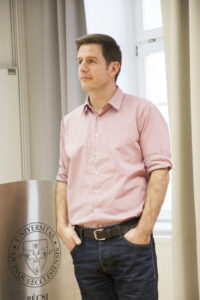
Tom Broekel is a Professor in Regional Innovation at the University of Stavanger Business School, Norway. He is also associated to the Center of Regional and Innovation Economics of the University of Bremen, Germany. Tom’s research is focused on geography of innovation, knowledge networks, analysis of R&D policy, methods of social network analysis, regional innovation systems, and renewable energies, tourism
Maria Tsouri, Western Norway University, Norway

Maria Tsouri is an Associate Professor at Mohn Centre for Innovation and Regional Development at Western Norway University of Applied Sciences. She holds a PhD in Local Development and Global Dynamics, by the University of Trento, and she has been postdoctoral researcher at TIK Centre for Technology, Innovation and Culture at University of Oslo, and at the Lund University School of Economics and Management. Her interests are focused on geography of innovation, geography of sustainability transitions, and knowledge and innovation networks. She was awarded the Regional Studies Association Early Career Grant for 2019.
Chair:
Sebastian Losacker, Leibniz University Hannover, Germany

Sebastian Losacker is a postdoctoral researcher at the Institute of Economic and Cultural Geography at Leibniz University Hannover. His research interests include the diffusion of green technologies, the geography of environmental innovation and regional sustainability transitions with a particular focus on China.
Session Details:
Rhiannon Pugh: Developing an inclusive and sustainable theory for peripheral regions development
DESCRIPTION:
There has been much discussion in the economic geography and regional studies literature about pathways for regional development, and the change agency required to achieve this. We have been especially interested in “struggling” regions such as post-industrial, peripheral, less favoured ones. However, there has been relatively little discussion of how we can ensure new development paths are inclsuive as well as sustainable. In this talk I will discuss a framework for studying peripheral region development from a holistic perspective, which is thus far not elaborated in the literature. A holsitic framework includes in addition to economic considerations envrionmental, political, and socio-cultural perspectives to reach a nuanced and holstic view of regional development.
Johannes Suitner: Testing sustainable peripheries. Putting transformative experiments in perspective
DESCRIPTION:
Experiments are considered an important lever for accelerating sustainability transitions and societal transformation at large. They come in many forms, from governance experiments to grassroots innovations, and have been widely studied in different geographical and socio-technical system contexts. At the same time, a couple of key dimensions still only receive little attention, putting the transformative potential of experiments at risk.
Johannes’ talk reports on ongoing research on climate and sustainability experiments in Austria that emphasizes some of these dimensions. He’ll be presenting initial findings on the significance of non-technological experiments, our reflections on the agency, imaginaries, and interests associated with the politics of experimentation, and how we combine these in the notion of transformative experiments. By presenting examples of decidedly rural experiments from our study, it becomes clear what “testing sustainable peripheries” might look like, and what the pitfalls are in terms of implementation and amplification.
Speaker Details:
Speaker: Rhiannon Rugh, Lund University, Sweden
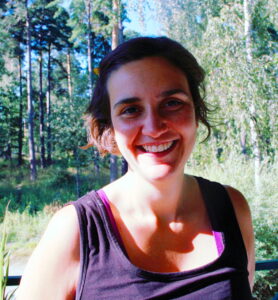
Rhiannon Pugh works at CIRCLE, Lund University as a Senior Lecturer in Innovation Studies, having previously worked and studied in the UK and Sweden. Her background is in economic geography, and she is especially interested in regional development and innovation. She is currently working on a three year research project funded by the Swedish Research Agency FORMAS investigating innovation policy in peripheral regions. She is especially interested in how we conceptualise peripheral regions and approach their sustainable development going forwards. She is also an editor of the journal Regional Studies Regional Science, early career section, and co-convenor of the RSA’s Gender and Regional Studies network.
Speaker: Johannes Suitner, TU Wien, Austria

Johannes Suitner is a spatial planner with an interest in urban and regional transformations and the drivers of stability and change in places. He currently holds a PostDoc position at TU Wien, Institute of Spatial Planning, Research Unit Urban and Regional Research. His recent work revolves around social innovation in regional energy transition, the role of agency in local sustainable transformations, transformative experimentalism vs. planning, and Vienna’s planning history.
Chair: Camilla Chlebna, CAU Kiel, Germany
Session Description:
Countries and regions with complex economic structures experience a privileged source of comparative advantage (Hidalgo & Hausmann, 2009). The ongoing green transition, supported by national and supranational policies, entails changes to the complexity of national and regional economies, as new industries are emerging, and traditional industries are under transformation or become obsolete. This shift in more sustainable paradigms entails implications for the production of goods and services, the comparative advantage of countries or regions, the shaping of the labour markets etc. The presentations of this webinar explore such effects of the green transition to different regional economic aspects.
Session Details:
Davide Consoli: The green transition, employment and skills
The green transition entails challenges and opportunities for a broad array of activities that will grow or contract in accordance with new environmental sustainability criteria. The extent of these transformations will, in turn, be both depending on as well as a cause of changes in the organisation of production and distribution, which will impinge accordingly on the demand and supply for jobs and of the attendant skills. Identifying the occupations and the capabilities that are most exposed to the transition is therefore crucial to inform policy. The lack of empirical evidence on these matters is further aggravated by the lack convergence in the definition of crucial jobs and skills. Prior literature points out that a binary ‘green’ vs ‘non-green’ occupational classification is of limited use due to the varying extent to which workers engage in activities that are related to environmental sustainability. This presentation will provide a summary of existing methodological approaches to the identification of green jobs and skills, and will survey empirical evidence on the extent, the drivers and the effects of green employment in the United States. After this broad overview, we will point out persisting gaps and future avenues of research.
Deyu Li: Complexity and the upgrading in global value chains: the case of wind industry in China
The increasing global manufacturing of clean energy products offers windows of opportunity for emerging economies to catch up by participating and upgrading in the global value chains of these industries. However, there are few systematic evaluations of the dynamics of upgrading in relevant value chains and the capabilities required. Building on the recent literature of economic complexity theory, we constructs complexity measures based on export and patent data to evaluate the upgrading dynamics of Chinese prefecture-level regions in the wind technology value chain between 2008 and 2015. We consider upgrading in the wind technology value chain as the process of developing more complex components of wind turbine. Our results show that upgrading of regions in the wind technology value chain is path-dependent on the local related capabilities within and beyond the value chain. Regions that start with stronger local related capabilities are more likely to have future increases in both export and patent complexity. Furthermore, local demand for wind turbines, especially in regions with policy driven niche market development in offshore and lower speed wind areas, plays an important role in mobilising manufacturing capabilities in related sectors to facilitate the upgrading. Our results highlight the importance and potential of targeted sub-national level policies and capabilities in the development of green industries.
Speaker Details:
Speaker: Davide Consoli, INGENIO (CSIC-UPV), Spain
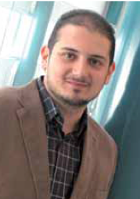
Davide Consoli is a Research Fellow of the National Council of Scientific Research based at the institute INGENIO (CSIC-UPV) in Valencia. He is an economist by training (MA, PhD Economics – University of Manchester) with research interests at the intersection between economics of innovation and studies on technology policy. His research focuses on the analysis of the sources and the effects of innovation across various empirical contexts including retail banking, medicine, knowledge intensive business services, and more recently environmental sustainability.
His work has been published in various innovation and policy journals such as Research Policy, Regional Studies, Industrial and Corporate Change and the Journal of Evolutionary Economics. Much of his research has been funded by the European Commission, the Department of Trade and Industry (UK), the Economic and Social Research Council (UK) and the Ministry of Economy and Competitiveness (Spain). He acted as Consultant for firms in the public and the private sector, as well as Scientific Adviser for international Higher Education Institutions in Europe and the United States.
Speaker: Deyu Li, Utrecht University, The Netherlands

Dr Deyu Li is a Research Associate at the Centre for Environment, Energy and Natural Resource Governance, where he currently works on the NSF-ESRC jointly funded project ‘Co-location of manufacturing and innovation: drivers and impacts of technological innovation along the wind energy global value chain’. Prior to joining C-EENRG, Deyu completed his PhD in Innovation Studies in Copernicus Institute of Sustainable Development, Utrecht University. His doctoral thesis deals with the place-dependence of renewable energy technologies. Deyu holds a master degree in Economic Geography from Peking University.
Session Details:
Speaker 1: Neha Mungekar: Strengthening capacities to ‘repair’ through workshops in India
DESCRIPTION:
Cities of India find it challenging to address the complex water crises in the form of scarcity, pollution, floods and unequal access. The current technology-heavy approach needs a multi-disciplinary perspective to read wicked governance problems epitomised by many secondary cities of the Global South. The prevalence of these problems has obstructed cross-agency cooperation, transparent implementation and maintenance of water projects, accountable usage of water, and inclusive planning and management, making the cities “unplannable”. The actors’ response has been a dynamic combination of a formal-informal governance approach to pave the way for enabling water service. Mobilising interpersonal relationships, thriving on individual intrinsic motivations, ability, and support to flout national rules for local good, and practising cronyism are a few arrangements of informal governance attempting to navigate messy socio-political regimes in place. While a quick and reactive response continues the systemic lock-in, this informal approach has enabled water service when aligned towards a collaboratively built long-term vision.
I study this type of repair as ‘reparation’, an incremental and iterative mode of transition that aims toward restorative justice for current and historical breakdowns and shortcomings, along with making amends for the future. My research looks at how this understanding of informality can develop ‘reparative Governance Capacities’ for secondary cities of India so that they can sustain and build resilience, thereby enabling water-sensitive city vision. I devised a framework of capacities that examines how directionality is organised within informality through consolidating actors’ roles and how they innovate to challenge institutional hindrances. The framework guides in identifying barriers that may hinder the implementation of experimental governance in regions without cultures of collaborative problem-solving.
I explored how experimental governance platforms such as workshops can mobilise reparative capacities. The workshop I organised in New Delhi sought to provide an incubation ground for the city’s stakeholders and leading domain experts to create and adapt novel water management paradigms towards the complex socio-political context of India. This arena attempted to develop a ‘safe space’, a much-needed science-policy interface across national and city levels. The talk will showcase the operationalising of the capacities framework and workshop learnings.
Speaker 2: George Wainaina: The missing link for effective informal settlement upgrading: Appropriation shaping the outcome of new infrastructure
DESCRIPTION:
Infrastructure investments, a core element of slum upgrading, are a key measure for improving the livelihoods of over 1 billion slum residents globally. However, these interventions mostly fail in the long run. Planning practice often successfully delivers functional infrastructure but evidence shows that their contribution to improved livelihoods is either absent or declines sharply after some time. To explain this limited effectiveness, this study identifies the missing link between infrastructure delivery and livelihood improvements as lying in the appropriation process, i.e. the uptake and embedding of infrastructures into the daily practices of residents. Recent insights from sociotechnical transitions studies help to conceptualize appropriation. The authors use Munyaka informal settlement in Eldoret town Kenya as a case to investigate, the mechanisms of new infrastructure uptake. Findings indicate that appropriation is a social process and proceeds in three steps: reception, domestication, and institutionalization. This process is driven by the need to maintain or adjust residents’ livelihood practices relative to prevailing socioeconomic and spatiotemporal conditions. The study concludes that appropriation is a significant process that planners should try to anticipate. Prevalent approaches to participation have to be modified accordingly. This is essential for planning to improve livelihoods in slums.
Speaker Details:
Speaker: Neha Mungekar, Dutch Research Institute for Transitions (DRIFT), Rotterdam

As a PhD researcher at DRIFT, Neha’s work lies at the intersection of urban water governance and transition studies. Her interests revolve in understanding power dynamics around distribution and allocation of the water resource. She is currently involved in Water4Change project in India, where she is developing a framework to assess, and then strengthen governance capacities to transition to water sensitive cities.
Neha hails from Mumbai, India. After completing Bachelors’ and Masters’ training in Architecture and Urban Design, she worked at the World Resources Institute (WRI) India. As an urbanist, along with spatial planning, she was primarily involved in consensus building, devising innovative participatory strategies in various parts of India. Later she moved to the Netherlands, to complete her second Master’s degree in Water Management and Governance from IHE-Delft. The research there focussed on access to water through the lens of political ecology scholarship and gender studies.
Apart from work, she has been part of the teaching faculty in various urban design and planning schools of India, Germany and the Netherlands. She is also a published photojournalist and an avid traveller.
Speaker 2: George Wainaina, Eawag, Switzerland
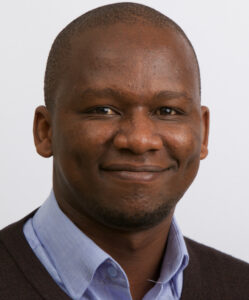
George recently completed his PhD in transition studies and innovations management at Utrecht University and Eawag. He am very interested in research that contributes to improving the effectiveness of planning, implementation and sustainability of infrastructures systems that provide basic services in informal settlements leading to improved livelihoods. Since informal settlements are some of the most precarious places, He believe that they are full of tacit knowledge that can extend mainstream theoretical concepts in sustainability transition literature.
Chair: Laura Norris, Cardiff University, UK
Session Details
Ping Huang: A ‘correlative’ turn for transition studies on and of China
Description
Transition theories rooted in the Anglophone academic tradition have been used to analyze sustainability transitions. However, these theories have been criticized for their tendency to misrepresent the social, cultural, and political structures that influence transitions in China. This talk advocates for a shift away from analyzing transitions “with Chinese characteristics” and toward alternative thinking that is genuinely rooted in Chinese epistemological and philosophical constructs. The proposed alternative approach is based on the correlative epistemology, which draws on the Chinese tradition of social studies. This tradition regards the cosmos as an ordered set of relationships, or guanxi, which is considered the fundamental constituent of Chinese society. The correlative epistemology emphasizes the importance of relationships and enables a culture-driven interpretation of China’s sustainability transitions. This approach addresses the calls for transition theories originating “from elsewhere.” Correlative interpretations of innovation and transition processes in China frame sustainability transitions within broader societal transformations. This perspective sheds light on how transition governance operates within the Chinese context and reveals the significant role of pre-existing guanxi networks in shaping the activities of actors in transition processes. By embracing correlative epistemology, the proposed approach responds to the critique of transition theories within the Anglophone academic tradition and contributes to a more comprehensive understanding of sustainability transitions in China.
Huiwen Gong: Green window of opportunity and the ‘third route’ of regional development: evidence from China’s peripheral regions
Description
The development of green industries in peripheral regions has gained increasing attention recently. Yet, the mechanisms through which peripheral regions can mobilize external resources and capabilities and turn them into locally sticky resources for longer-term economic development have not been sufficiently conceptualized. Based on evidence from China, this presentation proposes anchoring-based regional development as a third route, which stands between conventional globalist and regionalist approaches. It identifies the dynamic capabilities that allow peripheral regions to make long jumps in the product space. We show that if the anchoring process is smartly managed, developing emerging green industries in peripheral contexts is not necessarily a ‘casino strategy’, but can be a strategic approach for quickly and deeply transforming the industrial fabric of regional economies.
Speaker Details:
Ping Huang, The Chinese University of Hong Kong, Shenzhen

Ping Huang is an Associate Research Fellow at the Institute for International Affairs, the Chinese University of Hong Kong, Shenzhen, and also serves as the Director of the Centre for Technology, Innovation and Sustainable Development. His research interests lie at the intersection of innovation studies and economic geography, with a particular focus on understanding innovations related to significant societal challenges such as climate change in cities and regions. He holds two positions as an Associate Editor for Transactions in Energy and Sustainability and Asian Review of Political Economy, where he specializes in the fields of “Energy and Society” and “Political Economy of Science and Technology,” respectively. He also leads the British Academy project entitled “Just Transitions on the Ground: Ecological Civilization in Urban China?”
Huiwen Gong, Eawag, Swiss Federal Institute of Aquatic Science and Technology, Switzerland

Huiwen Gong is a postdoctoral researcher at the Institute of Geography, University of Bern. She received an EU Marie Curie Individual Fellowship in 2020, and her proposal was among the top 5% in the category “Social Sciences and Humanity”. Her research interests include the geographies of value chains (re)configuration in green technologies, regional sustainability transitions, Sino-German industrial dynamics, and regional future-making.
Chair: Sebastian Losacker, Justus Liebig University Giessen, Germany
Session Details:
Martín Obaya: The Scalene Triangle. Capability-development Strategies in the Lithium Industry in South America
Description
Lithium is a critical element in the global energy transition as it is used in the production of the batteries that underpin the expansion of electromobility (IEA 2021). By 2030, the demand for batteries is forecasted to explain 90% of total lithium production (Jones, Acuña et al. 2021). The International Energy Agency estimates that, compared to 2020 levels, lithium demand could grow between 13 and 42 times by 2040, depending on the energy transition scenario that ends up being verified (IEA, 2021).
Consequently, lithium assumed a strategic nature for countries rich in resources. Three South American countries, usually referred to as the “lithium triangle” –i.e., Argentina, Bolivia and Chile– explain 53% of lithium resources (USGS 2023). A socio-technical imaginary has gained force around lithium in this region vis a vis the view of lithium as an ordinary commodity (Barandiarán 2019). From this perspective, the importance of lithium is not mainly due to its capacity to generate economic rent, but to the possibilities it offers for developing domestic knowledge-intensive capabilities that contribute to the de-commoditization of the economy. The idea, therefore, is that the transition to electromobility offers countries in the region with abundant lithium resources an opportunity to escape from their traditional role as suppliers of raw materials. STI policies and the national innovation system would play a relevant role in this process.
How have the lithium-rich countries sought to take advantage of the lithium super-cycle and develop domestic capabilities? The metaphor of the “triangle” gives a sense of a compact and homogeneous block of nations. However, although the socio-technical imaginary permeated the public policies of the three countries, the strategies adopted by each country differ widely in terms of the targeted activities, the policy tools, and the role played by public and private actors.
The article characterises and compares the policy strategies pursued by each country to develop lithium-related production and technological capabilities and discusses their potential and limitations.
Beatriz Calzada Olvera: Suppliers’ entry, upgrading and innovation in mining GVCs. Lessons from Argentina, Brazil, and Peru
Authored by: Carlo Pietrobelli, Beatriz Calzada Olvera, Michiko Iizuka and Caio Mazzi
Description
Our paper studies whether the mining sector can represent a true engine of growth for selected Latin American countries through the suppliers’ entry and upgrading within mining value chains. We first use international trade data to study where mining value is added and how rents are distributed across countries. Despite their importance in the production and exports of copper ores and concentrate, the participation of the selected Latin American countries in copper value chains is still confined to the upstream segment. Moreover, their share of innovation relevant to the sector remains very limited, although new data on patenting and publications show that the sector is becoming increasingly innovative worldwide.
Then we use new microeconomic evidence from case studies in Latin America to explore the specific opportunities and obstacles faced by mining suppliers in entering the value chain and upgrading within it, and how the regulatory and innovation systems have influenced this process. We show that barriers related to the contractual practices, lead firms’ attitudes, and the hierarchical industrial organization of the sector, coupled with the countries’ weaknesses in local innovation and regulatory systems, have been contributing to hampering suppliers’ entry into and upgrading within mining value chains
Speaker Details:
Martín Obaya, National University of San Martin, Argentina

Martín Obaya is a researcher at the National Scientific and Technical Research Council in Argentina (CONICET). He is the Director of the Centro de Investigaciones para la Transformación (CENIT) at the Economics and Business School of the National University of San Martín (Argentina). He holds a bachelor’s degree in economics (University of Buenos Aires, Argentina) and a master’s degree in International Relations (University of Bologna, Italy). In 2014, he obtained a PhD in Arts from Monash University (Australia). Since 2016, his research has focused on the governance of the lithium industry in South America and the public policy strategies aimed at fostering capabilities in related value chains
Beatriz Calzada Olvera, Institute for Housing and Development Studies, Erasmus University Rotterdam, The Netherlands

Beatriz Calzada Olvera, PhD, is an economics researcher and lecturer at Erasmus University Rotterdam’s Institute for Housing and Urban Development (IHS) and an affiliated researcher at UNU-MERIT. Her research explores the intersection of natural resources, innovation, and development economics, with a focus on areas such as local economic growth, industrial organization, trade, global value chains, inequality, and economic resilience.
Chair: Maria Tsouri, Western Norway University of Applied Sciences, Norway
Sam Hampton, Environmental Change Institute, University of Oxford, UK
Abstract:
SMEs are essential to achieving climate goals but they have been largely neglected in national and regional policy-making in most nations. They are often exempted from environmental regulations and taxation, and are instead targeted with incentive policies such as subsidies and advice. Taking a systematic approach to identifying multi-scalar modes of governing for SME decarbonisation, this talk identifies key ‘modes of governing’ for SME decarbonisation, and argues that across Europe, these are insufficient for meeting net-zero. Drawing on recent empirical work investigating changing governance arrangements in the UK, this talk will highlight opportunities for generating more transformative policy, commensurate with climate goals.
Lauren Tuckerman, Oxford Brookes University, UK
Abstract:
Small businesses are at the heart of sustainable transitions; they have the opportunity to not only provide local communities with sustainable alternatives, but also to inspire change in the people and peers around them. However, we are yet to see all small businesses embrace sustainability, and unlocking sustainable business models for small businesses has had less attention than large business models.
Small retailers and hospitality businesses are also struggling to keep afloat during the cost of living crisis; having weathered the impact of Brexit and COVID, resilience is being tested again. Simultaneously, there are calls for all businesses to tackle their environmental impact and increase societal impacts. This calls for an alignment of goals related to the triple bottom line. To do so, we are working with a partner organisation – Green Street – to understand the connections between self reported business success factors related to their commercial goals, and their sustainability objectives (aligned with their social and environmental goals). We are in the process of developing a tool that supports strategic decision making for small retailers and hospitality businesses. In this presentation we will present some of the early findings from the project, including our initial model which attempts to make connections between business success factors, and sustainability objectives in this type of organisation, before going on to empirically test our model.
Speaker Details:
Sam Hampton, Environmental Change Institute, University of Oxford, UK

Sam Hampton is a Researcher in the Environmental Change Institute at the University of Oxford and Research Fellow at the University of Bath. His research focuses on the governance of the zero-carbon transition, and he has conducted empirical and theoretical work on SMEs, low-carbon intermediaries, electric vehicle charging infrastructure, energy innovation and programme evaluation. Sam has worked as a low-carbon advisor with Local Enterprise Partnerships, providing support to SMEs to reduce their carbon footprints. Building on his research and consulting experience, he co-created the online course ‘Promoting Sustainability in Business’ to support SME intermediaries seeking to effect pro-environmental change. He has published articles in international journals and presented his work to government and business networks. Sam leads a project investigating the governance of SME decarbonisation, funded by the UK Energy Research Centre.
Lauren Tuckerman, Oxford Brookes University, UK
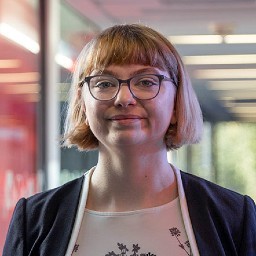
Dr Lauren Tuckerman is a senior lecturer at Oxford Brookes Business School. Lauren teaches and researches in the areas of societal impact, social enterprise and sustainability. She is an engaged researcher, with a passion for working collaboratively with partners. She is a co-investigator on the Innovation and Research Caucus, leads on projects related to small business sustainability alongside Small Business Britain and Green Street. Before joining Oxford Brookes University, Lauren worked as a research associate at the University of Sheffield on projects related to sustainable innovation policy. She completed her PhD on Open Social Innovation in the Scottish Third Sector at Glasgow Caledonian University. Prior to joining academia, Lauren worked with social enterprises in Scotland as a research consultant.
Chair: Laura Norris, Cardiff University, UK
CREST joined forces with the RSA funded Research Network on Transformative Knowledge Regions (TRAKR) in February and March: Knowledge is a crucial driver of social change in sustainability transition for sure! But how to actually explore and measure “transformative knowledge” within and across regions and at various scales? This fundamental question is at the core of the Regional Studies Association Research Network on Transformative Knowledge Regions (TRAKR) and will be addressed in two webinars.
This first webinar pointed to epistemological and methodical issues for qualitatively exploring how transformative knowledge and knowledge dynamics develop and anchor in différent regional contexts. The focus will be on the transformative value of engaged qualitative research and on the socio-technological configurations and topologies of knowledge in sustainability transition. TRAKR-Webinar1-QualitativeMethods
The second webinar raised questions and discussions about how to quantify the potential transformative knowledge assets of regions and nations and the patterns and structures of transformations across time and space. TRAKR-Webinar2-QuantitativeMethods
Thursday 22nd February – Exploring Transformative Knowledge in Transition Processes
The webinar was organised in two parts. The first part, moderated by CREST, gave the keynote speakers the floor with short plenary discussions, while the second part, moderated by TRAKR, allowed more time for breakout groups to discuss the issues raised in each presentation and more general research avenues in a final plenary session.
Keynote 1: Gesa Pflitsch, University of Natural Resources and Life Sciences (BOKU), Austria
Visual analysis of complex institutional dynamics in transformative knowledge regions
Transformative knowledge depends on institutional transformations that are based on multiple gradual changes driven by dispersed actors on different spatial scales. The process-based approach of transition topology allows to capture the emergent phenomena resulting from these micro-level changes and to make visible the underlying pattern of institutional change.
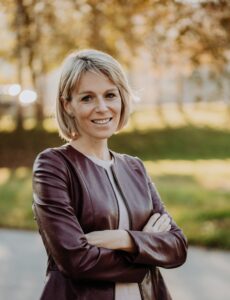
Gesa is an economic geographer, who currently works as a postdoc at the University of Natural Resources and Life Sciences (BOKU) in Vienna, Austria. She received her PhD from the University of Marburg, Germany, and later worked as an Associate Professor at the Western Norway University of Applied Sciences in Bergen, Norway. Gesa is particularly interested in sustainability transformations at the urban and regional level. In her work, she combines approaches from evolutionary economic geography, neo-institutional theory, and sustainability transitions research. She among others conducts research on the role of universities and civil society actors in regional sustainability transformations and works on new methodological approaches to visually analyze regional transformation processes.
Keynote 2: Christian Binz, Eawag, Switzerland
Tracing transformative knowledge dynamics with socio-technical configuration analysis (STCA)
Tracing transformative innovation dynamics in space and time asks for new methodological frameworks that are able to assess how new socio-technical configurations (instead of single technologies or products) emerge, develop and get institutionalized. In this talk, I will introduce a novel method under development at Eawag, which is able to map and assess how innovation and valuation dynamics tightly co-evolve in sectoral, as well as regional, urban or multi-scalar transformation trajectories. In addition to introducing the basic tenets of the method, I will also provide empirical illustrations on the potentials and limits of the method from recent case studies in the urban water management and mobility sectors.
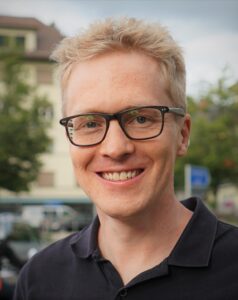
Christian is a research group leader at the Department of Environmental Social Sciences (ESS) at the Swiss Federal Institute of Aquatic Science & Technology (Eawag). His main research interests are centered on the geographies of innovation and sustainability transitions, the globalization of clean-tech innovation, as well as green industrial path development and leapfrogging dynamics in middle-income countries like China and India. By combining recent insights from transition studies, economic geography and institutional sociology, he aims to explore how multi-scalar actor networks and institutional arrangements influence the development and diffusion of clean-tech industries and sustainability transitions in key infrastructure sectors like energy, water, or transport.
Keynote 3: Flora Cornish, LSE, United Kingdom
Engaged researchers and transformative knowledge: Methodological principles
Scholars engaged in building transformative knowledge find themselves involved in complex and messy relationships with multiple stakeholders, institutions, power relations, and various conceptions of ‘science’. This talk addresses the epistemology and methodology of engaged science, exploring the role of the researcher as an active participant in producing transformative knowledge. We discuss key dilemmas, challenges, and the principles that transformative researchers use to safeguard the validity and power of their research.

Flora Cornish is Associate Professor in Qualitative Research Methodology at the London School of Economics and Political Science. She is a community psychologist investigating the role of grassroots mobilisation in improving public health, both through local-level community responses to health crises, and through wider organising, coalition-building and campaigning. She aims to do research that has transformative potential, with an interest in democratising knowledge, using qualitative methods, community collaborations, and theoretical resources that resonate with health-promoting struggles.
Moderators:
CREST: Camilla Chlebna, Kiel University, Germany
TRAKR: Hugues Jeannerat, UNINE, Switzerland
CREST is glad to join forces with the RSA funded Research Network on Transformative Knowledge Regions (TRAKR) in February and March: Knowledge is a crucial driver of social change in sustainability transition for sure! But how to actually explore and measure “transformative knowledge” within and across regions and at various scales? This fundamental question is at the core of the Regional Studies Association Research Network on Transformative Knowledge Regions (TRAKR) and will be addressed in two webinars.
The first webinar will point to epistemological and methodical issues for qualitatively exploring how transformative knowledge and knowledge dynamics develop and anchor in différent regional contexts. The focus will be on the transformative value of engaged qualitative research and on the socio-technological configurations and topologies of knowledge in sustainability transition.
The second webinar will raise questions and discussions about how to quantify the potential transformative knowledge assets of regions and nations and the patterns and structures of transformations across time and space.
Thursday 21st March – Capturing and Measuring Transformative Knowledge Capacities
The webinar will be organised in two parts. The first part, moderated by CREST, will give the keynote speakers the floor with short plenary discussions, while the second part, moderated by TRAKR, will allow more time for breakout groups to discuss the issues raised in each presentation and more general research avenues in a final plenary session.
Keynote 1: Sebastian Losacker, Justus-Liebig-University Giessen, Germany
Geographical sequence analysis
The aim of this talk is to introduce sequence analysis methods to economic geography and regional studies. Sequence analysis is a rich set of research methods that is widely used to analyze temporal variance in several disciplines in the social sciences, including sociology, demography and employment research. However, the toolbox of sequence methods has yet to gain significant attention among geographers. Sequence analysis methods can be used to analyze and understand patterns and structures of various phenomena over time. It employs mathematical and statistical techniques to study the sequential order, duration, and transitions between temporal conditions. The presentation explains how to use sequence analysis for research on transformative change in regional studies.

Sebastian Losacker is a scholar in the field of economic geography, having earned a doctorate from Leibniz University Hanover with a thesis on the spatial diffusion of environmental innovations. He currently holds a position as a Junior Research Group Leader at Justus-Liebig-University Giessen. His research centers on the geography of innovation and the geography of sustainability transitions, with a particular focus on the bioeconomy.
Keynotes 2: Tjaša Bartolj and Nika Murovec, University of Ljubljana, Slovenia
Advancing the Measurement of Transformative Knowledge Potential: A Collaborative Approach
In their ongoing experiment to develop a measure of transformative knowledge potential, the speakers will actively involve the knowledgeable audience. They will collaboratively assign weights to specific proposed indicators using the ‘budget allocation approach’. This participatory session will seek to harness the collective expertise of the audience to advance our understanding and refine the measurement process.

Tjaša Bartolj works as a researcher at the Institute for Economic Research, a lecturer of Labor economics at the University of Ljubljana (School of economics and business), and a consultant at the World Bank (IBRD/IDA). She holds a PhD from the University of Ljubljana, Slovenia. Her research interests are applied econometrics, economics of education, behavioral and labor economics.

Nika Murovec is a senior researcher at the Institute for Economic Research. She holds a PhD from the Faculty of Economics, University of Ljubljana, Slovenia. Her research work has mostly been focused on the analysis of different aspects of knowledge and innovation, with emphasis on human resources, knowledge transfer, creativity and sustainability.
Moderators:
Luis Carvalho, University of Porto, Portugal
Maria Tsouri, Western Norway University of Applied Sciences, Norway
Terese Venus, Research Group Bioeconomy Economics, University of Passau, Germany
Abstract
The Circular Bioeconomy Transition and Global Biomass Value Chains
The bioresource vision of the circular bioeconomy concept relies on the replacement of fossil fuels with biomass across various industries and sectors. However, this transformation will not only replace fossil fuels but restructure global biomass value chains. This talk will delve into the potential interactions between the transition to the circular bioeconomy and sustainable development. Further, it will draw on case studies from the ongoing transformation in tropical fruit value chains from Costa Rica, the Philippines and Ghana.
Nicolas Befort, Neoma Business School, France
Abstract
The Contribution of Epistemic Communities to the Sustainability Transition: The Case of the Wine Industry
Analyses in terms of multi-level perspective or transition phases increasingly highlight the key role of localized processes and organizations between the niche and the regime. Yet this space has remained relatively unexplored in the analysis of the transition from niche to regime. In order to theorize the processes at work in this intermediate space, this article proposes to cross the multi-level perspective with the analysis of ecosystems of innovation. The intersection of these two perspectives sheds light on the key role played by the dynamics of epistemic community building in the transformation of socio-technical systems. Our study is based on the analysis of the sustainability transition of the Champagne vineyards. The Paper is co-authored with Patrick Cohendent.
Speaker Details:
Terese Venus, Research Group Bioeconomy Economics, University of Passau, Germany
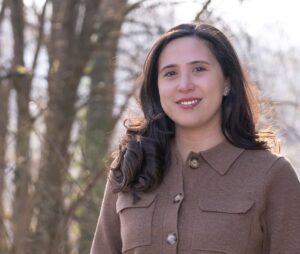
Terese Venus is an ecological economist and is currently leading the Research Group Bioeconomy Economics at the University of Passau in Germany. She holds a PhD from the Technical University of Munich. In the context of the circular bioeconomy, her research focuses on the role that institutions, individuals and cultures play in shaping its transition. As she lives on an active family farm, she is particularly passionate about supporting evidence-based policymaking in the areas of agricultural and environmental economics.
Nicolas Befort, Neoma Business School, France

Nicolas Befort is associate professor of economics at Neoma Business School and the director of the chair in Bioeconomy and Sustainable Development. His work, at the crossroads of innovation studies, sustainability transition studies and ecological economics, aims to analyze the issues involved in moving away from the fossil economy. To this end, he studies the emergence of new areas such as the bioeconomy, and the transformation of existing areas such as viticulture and agriculture.
Speakers
Tuukka Mäkitie, University of Oslo, Norway
The role of sectoral configurations for hydrogen innovation and value chains
Muditha Abeysekera, Cardiff University, UK
Regional energy planning – a new paradigm for energy system planning in the UK
Regional energy planning has become a growing priority in the UK to ensure that energy supply aligns with local needs, available resources, and sustainability objectives. As the nation transitions to a low-carbon economy, regions are increasingly harnessing renewable energy sources such as wind, solar, and tidal power, utilising local assets to support decarbonisation. Effective planning to identify renewable energy generation, storage opportunities and grid infrastructure requirements require data to provide evidence-based decision-making. Data sharing among local authorities, energy network companies, and other stakeholders is crucial for optimising energy system design, forecasting demand, and identifying infrastructure challenges in integrating renewable sources. This collaboration fosters innovation, ensuring regions can meet national targets while addressing local priorities.
This talk will explore the evolving principles of energy system planning in the UK, and introduce an initiative in South Wales to develop collaborative data platform designed to support these efforts.
Chair: Laura Norris, Cardiff University, UK
Linus Kalvelage, University of Cologne, Germany
Interpath Relations in the Periphery – Green Hydrogen and the Oil Industry in Namibia
Green hydrogen is seen in many quarters as the energy carrier of the future that can help achieve global decarbonization targets. Ambitious investment projects are targeting countries in the Global South with favorable conditions for production, raising hopes for green industrialization. While the potential developmental impacts of large-scale hydrogen production units are hotly debated, both proponents and critics of green hydrogen development overlook the entanglements with the global oil and gas industry. To address this gap, I draw on recent conceptual advances in the path development literature and apply an interpath perspective to the energy transition. I argue that industrial paths are linked not only through shared assets and markets, but also through knowledge institutions and political legitimacy. By acknowledging this, I highlight the multi-scalarity of transformative agency to create synergetic or competitive interpath relations and thus accelerate or slow down the energy transition. To illustrate these considerations, the framework is applied to Namibia, where two industrial paths are currently emerging simultaneously: green hydrogen and oil and gas. Qualitative research shows that the paths are competing for the same scarce assets, markets, legitimacy and knowledge institutions – but local agency is directed towards creating cooperative, synergistic relationships, while destructive agency is largely absent. These findings reinforce previous calls for greater engagement between the interpath framework and energy transitions, particularly in countries of the Global South.
Linus Kalvelage is a postdoctoral researcher and lecturer at the Institute of Geography in Cologne, Germany. As part of the Economic Geography and Global South working group, his habilitation project focuses on geopolitics and global energy production networks, interpath relations and energy transitions, and green industrialization and industrial linkage creation in Southern Africa and Southeast Asia. Previously, Linus’ PhD project focused on the commodification of nature in value chains and growth corridor policies as spatial development tools.
Michaela Trippl, University of Vienna, Austria
Exploring inter-path relations of “strategic” industries: Implications for regional development and sustainability transitions
Inter-path relations between both established and emerging economic activities represent a crucial but underexplored topic in economic geography and related fields. The talk emphasises the significance of inter-path dynamics and disentangles various dimensions of these dynamics, particularly in the context of sustainability transitions. Following a brief critical review of existing literature on path interrelations, the focus shifts to industrial activities in fields such as batteries, microchips, and critical raw materials. These industries are considered indispensable for transitioning the mobility and energy systems towards sustainability and have gained enormous policy attention, especially amidst geopolitical tensions and concerns over strategic autonomy and technological sovereignty. In Europe and beyond, these industries are also viewed as potential drivers of new socio-economic vitality in non-core regions, offering opportunities for brighter regional futures. The talk illustrates how analysing local and non-local inter-path relations can help critically assess the ecological, social, and economic impacts of “strategic” industries both within and beyond their host regions.
Michaela Trippl is a Full Professor of Economic Geography at the University of Vienna, Austria. She is also Professor II at the University of Agder, Norway. She was elected Fellow of the British Academy of Social Sciences (FAcSS) and Fellow of the Regional Studies Association (FeRSA) in 2021. Michaela’s research primarily centres on the geography of innovation and sustainability transitions, challenge-oriented innovation systems, green path development, and place-based transformative innovation and industrial policies.
Chair: Camilla Chlebna, ZSI – Centre for Social Innovation, Vienna, Austria